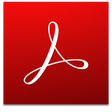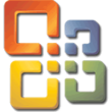adbwinapi.dll for Windows
- By Great Downloads
- Free
- 1.0.1.1
Editors' Review · September 16, 2021
Technical
- Title
- adbwinapi.dll 1.0.1.1 for Windows
- Requirements
- Windows 2000
- Windows 98 SE
- Windows 7
- Windows 2003
- Windows 95
- Windows 8.1
- Windows Vista
- Windows ME
- Windows 8
- Windows XP
- Windows NT
- Windows 98
- Language
- English
- Available languages
- Arabic
- Czech
- Danish
- German
- Greek
- English
- Spanish
- Finnish
- French
- Italian
- Japanese
- Korean
- Dutch
- Norwegian
- Polish
- Portuguese
- Russian
- Swedish
- Turkish
- Chinese
- License
- Free
- Latest update
- Author
- Great Downloads
- SHA-1
8722e0e982f03993671932cbd196bf0a91e7b523
- Filename
- adbwinapi.dll_download.exe
Program available in other languages
adbwinapi.dll for Windows
- By Great Downloads
- Free
- 1.0.1.1
Changelog
We don’t have any change log information yet for version 1.0.1.1 of adbwinapi.dll. Sometimes publishers take a little while to make this information available, so please check back in a few days to see if it has been updated.
Can you help?
If you have any changelog info you can share with us, we’d love to hear from you! Head over to our Contact page and let us know.
Explore apps
Related software

Adobe Acrobat Reader DC
Reliable PDF viewing and annotation for all users

WinRAR 64-bit
Trusted compression for personal and professional use

WinRAR 32-bit
A reliable and secure file compressor

Google Chrome
A fast, feature-rich browser

2007 Microsoft Office Add-in: Microsoft Save as PDF or XPS
2007 Microsoft Office Add-in: Microsoft Save as PDF or XPS for Windows explained

AnyDesk
Effortless remote access with AnyDesk
CCleaner Free
Cleaning and optimization made simple

Microsoft Office Suite 2007 Service Pack 3
Microsoft Office Suite 2007 SP3 for safest office works
Adobe Illustrator CC
Solid choice for Creative Cloud vector design

WhatsApp
Seamless messaging across devices
Rufus
Efficient USB drive preparation for any system
Python
A language built on clarity and flexibility
Last updated
MSI Afterburner
Reliable overclocking for all graphics cards
BatteryBar
Detailed utility for monitoring battery performance
IObit Unlocker
Simple tool for stubborn file access
PhotoRec
Open-source data recovery utility
DroidCam
Turn your phone into a webcam

Call of Duty
Detailed World War II combat experience with squad-based action
IObit Advanced SystemCare
A tidy-up tool for everyday PC care

Clover
Simplify folder management with tabbed browsing
HWMonitor
Comprehensive hardware monitoring for Windows
Icecream Screen Recorder
Flexible screen recording with built-in tools

Baidu PC Faster
An all-in-one cleaner from Baidu
SoftPerfect NetWorx
Comprehensive window into network activity